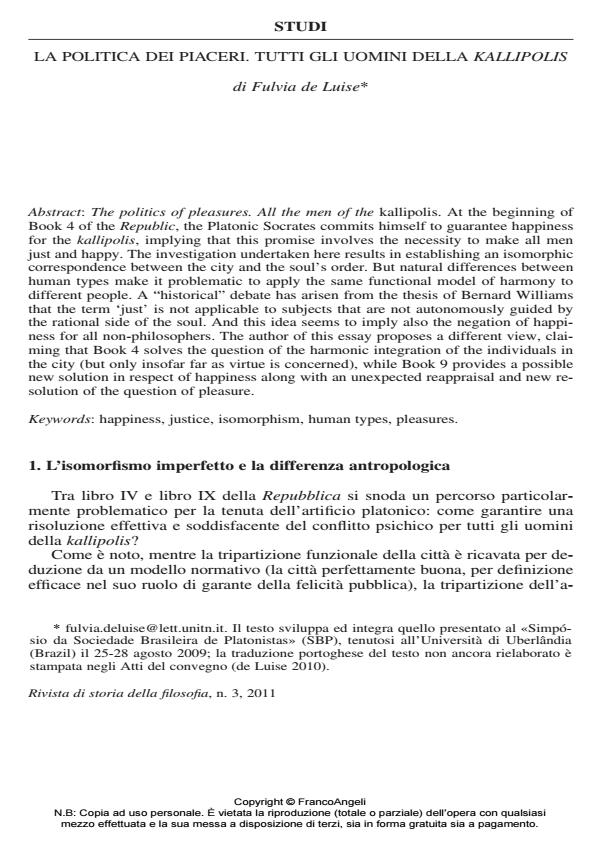The politics of pleasures. All the men of the kallipolis
Journal title RIVISTA DI STORIA DELLA FILOSOFIA
Author/s Fulvia De Luise
Publishing Year 2011 Issue 2011/3
Language Italian Pages 19 P. 389-407 File size 524 KB
DOI 10.3280/SF2011-003001
DOI is like a bar code for intellectual property: to have more infomation
click here

FrancoAngeli is member of Publishers International Linking Association, Inc (PILA), a not-for-profit association which run the CrossRef service enabling links to and from online scholarly content.
At the beginning of Book 4 of the Republic , the Platonic Socrates commits himself to guarantee happiness for the kallipolis, implying that this promise involves the necessity to make all men just and happy. The investigation undertaken here results in establishing an isomorphic correspondence between the city and the soul’s order. But natural differences between human types make it problematic to apply the same functional model of harmony to different people. A "historical" debate has arisen from the thesis of Bernard Williams that the term ‘just’ is not applicable to subjects that are not autonomously guided by the rational side of the soul. And this idea seems to imply also the negation of happiness for all non-philosophers. The author of this essay proposes a different view, claiming that Book 4 solves the question of the harmonic integration of the individuals in the city (but only insofar far as virtue is concerned), while Book 9 provides a possible new solution in respect of happiness along with an unexpected reappraisal and new resolution of the question of pleasure.
Keywords: Happiness, justice, isomorphism, human types, pleasures
- L’atopie comme paradoxe politique Fulvia De Luise, in Philosophie antique /2020 pp.17
DOI: 10.4000/philosant.3637
Fulvia De Luise, La politica dei piaceri. Tutti gli uomini della <i>kallipolis</i> in "RIVISTA DI STORIA DELLA FILOSOFIA" 3/2011, pp 389-407, DOI: 10.3280/SF2011-003001